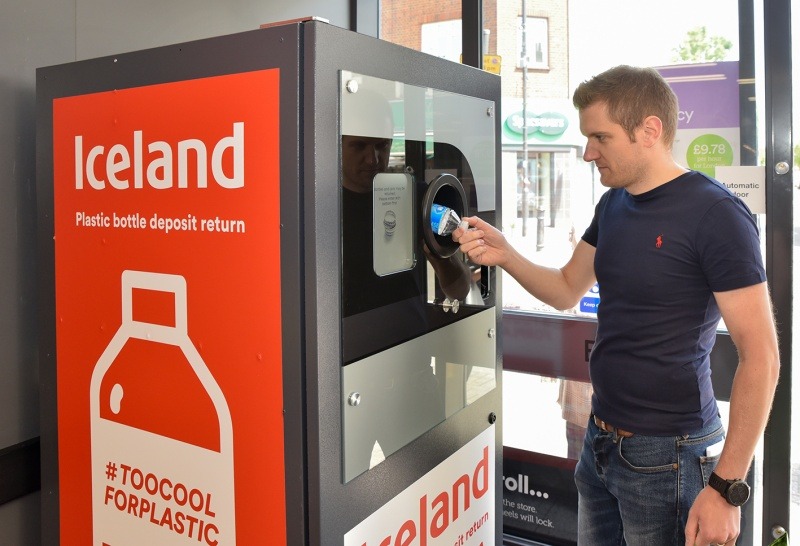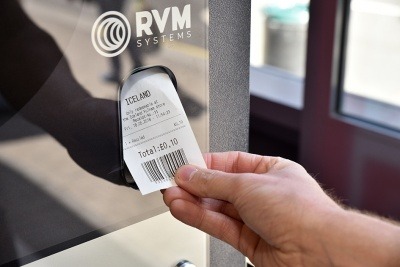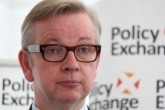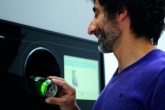Iceland to trial a reverse vending machine for plastic bottles

Supermarket chain Iceland has added another first to its growing list of actions against plastic packaging with the news that it has installed a reverse vending machine for plastic bottles in one of its London stores, the first UK supermarket to do so.
This follows the announcement last week (17 May) that the company will be the first to adopt a ‘Plastic Free’ trust mark, developed by campaign group A Plastic Planet, to show consumers which of its own-brand packaging is free of plastic. Starting with just three products, the company stated it hopes to roll the label out to more products by the summer.
Iceland will be trialling the reverse vending machine in its Fulham store for an initial six-month period. The machine will accept the store’s own plastic beverage bottles for recycling and will repay users with a 10 pence money-off voucher for every bottle returned.
The supermarket has expressed its support for the concept of a nationwide deposit return scheme (DRS), stating that its own trial will provide ‘insights which will allow Iceland to maximise the positive environmental impact of the national initiative.’
A possible DRS for England has been in the works since an initial consultation in October 2017 and has been recommended by Parliament’s Environmental Audit Committee (EAC). With Scotland and Wales considering their own schemes, Defra confirmed on 28 March that, subject to the results of a second consultation, an English DRS will be introduced in the near future, although Environment Secretary Michael Gove revealed at an EAC hearing in April that legislation for the scheme may not be approved until 2020.

Commenting on Iceland’s announcement, Managing Director Richard Walker said: “We’re the first supermarket to take decisive action to bring the reverse vending machine into stores, following the announcement of the government’s support for a deposit return scheme in England. We’re doing it properly, through consultation with suppliers and by gaining understanding of how customers will act in response to the machine.
“There are 12 million tonnes of plastic entering our oceans every year, so we feel a responsibility both to tackle the issue of plastic packaging, as we are doing with our own-label products, and to give our customers the power to make a difference themselves.”
Gove has expressed his support for the move, stating: “I applaud Iceland for leading the way with their trial scheme. It is absolutely vital we act now to curb the millions of plastic bottles a day that go unrecycled. Support from businesses will be a vital part of ensuring we leave our environment in a better state than we found it.”
While the government’s plans for a national DRS would cover plastic, glass and metal drinks containers, Iceland’s DRS in miniature will only be accepting Iceland plastic beverage bottles. A representative of Iceland told Resource: “During this trial, Iceland’s machine will only accept plastic bottles with an Iceland barcode. The machine Iceland is using uses barcode recognition software to identify Iceland products.”
This software will enable the supermarket to police the machine and prevent users playing the system by returning different types of bottles or bottles purchased elsewhere. However, the Iceland spokesperson reiterated that the purpose of the trial is to “understand consumer perceptions and appetite for the technology”, and acknowledged that the specifics of the machine and technology used “may change following the outcomes of the government’s consultation.”
Despite Iceland’s recent pledges against plastic packaging waste – the chain stated in January that it would make all of its own-brand products (around 1,400 items) free of plastic within five years – it has not signed up to the new UK Plastics Pact, a cross-industry commitment to eliminating ‘unnecessary’ single-use packaging by 2025.
Most of the UK’s biggest supermarket chains, including Sainsbury’s, Tesco, Asda, Waitrose and Lidl, as well as a number of packaging producers, recyclers and reprocessors, have signed up to the Pact, which is led by the Waste and Resources Action Programme (WRAP) and circular economy charity the Ellen MacArthur Foundation.
Iceland is notably absent from the list of members, highlighting how voluntary pledges such as this allow retailers and businesses to opt in or out of making changes that are not required by government policy. However, Walker told the Guardian that Iceland chose not to participate because its own plastic-reduction ambitions surpass those in the Plastics Pact: “We have already taken a more far-reaching decision to eliminate plastic packaging from our own label range in its entirety by 2023. Given the scale of our ambition, we feel that is right to focus all Iceland’s resources on delivering this.”











